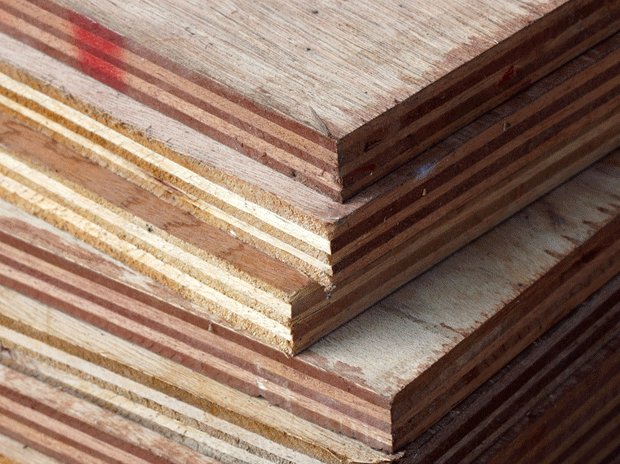Business Standard– Sharp drop in demand for plywood leading to a decline in sales and a major threat of direct and indirect job losses
The plywood and laminates industry is in the doldrums as prices of phenol and other chemicals used by it are on the rise due to a surge in crude oil prices. A high goods and services tax (GST) of 28 per cent on plywood was already proving to be a drag on the industry.

The plywood industry has witnessed a sharp fall in demand; units are working at lesser capacities; sales have fallen; farmers’ income from selling tree wood has fallen; and the threat of unemployment is looming, according to industry players.
Janak Ladhani, director of Mumbai-based Sonkamal Enterprise and one of the largest importers of phenol, said, “Phenol (a crude oil derivative) is used in the plywood industry to join thinner sheets. It is also used for lamination. Now, following a spurt in crude oil prices, phenol prices have increased 18-20 per cent in two months, resulting in a reduced demand and impacting overall business sentiment. A 28 per cent GST on plywood has further hurt the industry.”
In India, phenol prices have increased from Rs 68 to Rs 80 a kg in the past two months, while international prices have gone up from $900 to $1,150 a tonne. Prices of other chemicals, too, are up nearly 30 per cent.
Apart from phenol, other chemicals used in laminates are methanol, formaldehyde, and melamine. In the case of laminates, the cost of chemicals makes up about 40 per cent of the cost of production. The size of India’s plywood Industry is estimated at Rs 26,000 crore, and it’s largely based in Haryana’s Yamuna Nagar, which supplies 60-65 per cent of total plywood in India. The laminates industry’s size is estimated at Rs 7,000 crore. Plywood requires lamination when used for furniture.
Rajesh Trehan, partner, Shreeram Wood of Yamuna Nagar, said, “Due to a high GST of 28 per cent, the demand for plywood of all categories has fallen 10-15 per cent since the new tax regime’s roll-out. There are 400-450 units here, and many of them are working at lower capacities, impacting business and employment.”
He proposed a sharp cut in the GST and said the UAE bought plywood from China while India’s cost was quite competitive and, hence, the government should incentivise exports of plywood. This, he said, would help generate employment and increase farmers’ income.
Plywood is made from the wood of the Poplar and Eucalyptus trees grown in 500-600-km belt spread in Punjab, Haryana, Uttarakhand, and UP. This kind of farming is out of forest reservations and falls under agri plantations. Farmers plant these trees only to supply wood to plywood makers, mostly in the northern belt.
Since these tree plantations fall under agriculture, lakhs of farmers are said to have been doing such farming to earn their livelihood. Tree takes four years to mature, and wood is sold. New plantations continue in rotation, improving the ecology of the region, apart from generating income for farmers and creation of employment.
Another Rajasthan-based plywood maker said several units were under small scale, claiming excise exemption in the earlier regime while VAT was between 5 and 14.5 per cent in different states. A sudden rise in tax incidence to 28 per cent had hurt business and some units were even opting to deal in cash to stay out of the tax net and continue doing business, he added.
Even organised sector demand (furniture makers, contractors) for plywood has fallen 25 per cent as there is overall slump in the furniture business.
Jitendra Patel, managing director of Ahmedabad-based Royal Touch Laminates, said, “The rising cost of chemicals has pushed prices of products higher. Demand for laminates due to a lower plywood demand and overall slump in real estate has also been impacted.”
Laminates attract an 18 per cent GST. In the pre-GST era, total tax was 28 per cent. About 30 per cent of the country’s laminates are supplied by Gujarat and units are based in Ahmedabad and Morbi.



